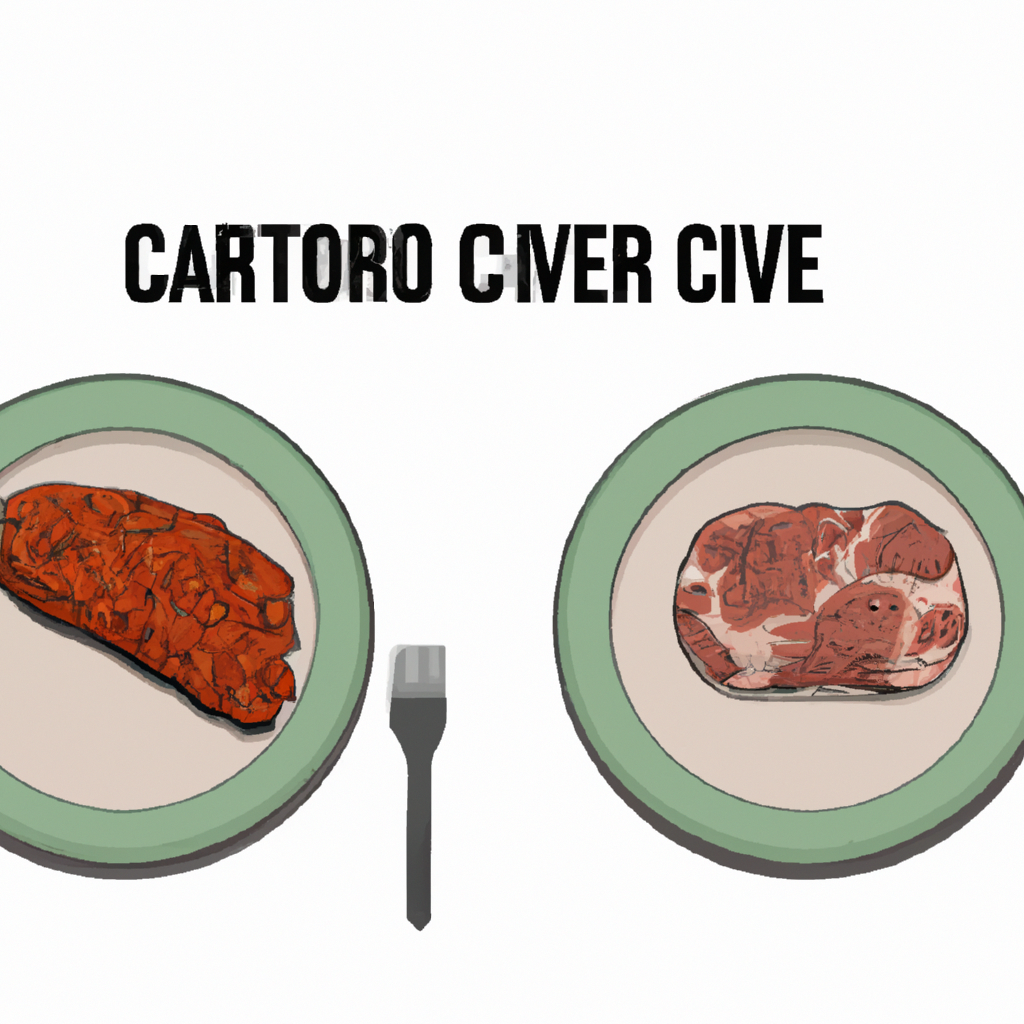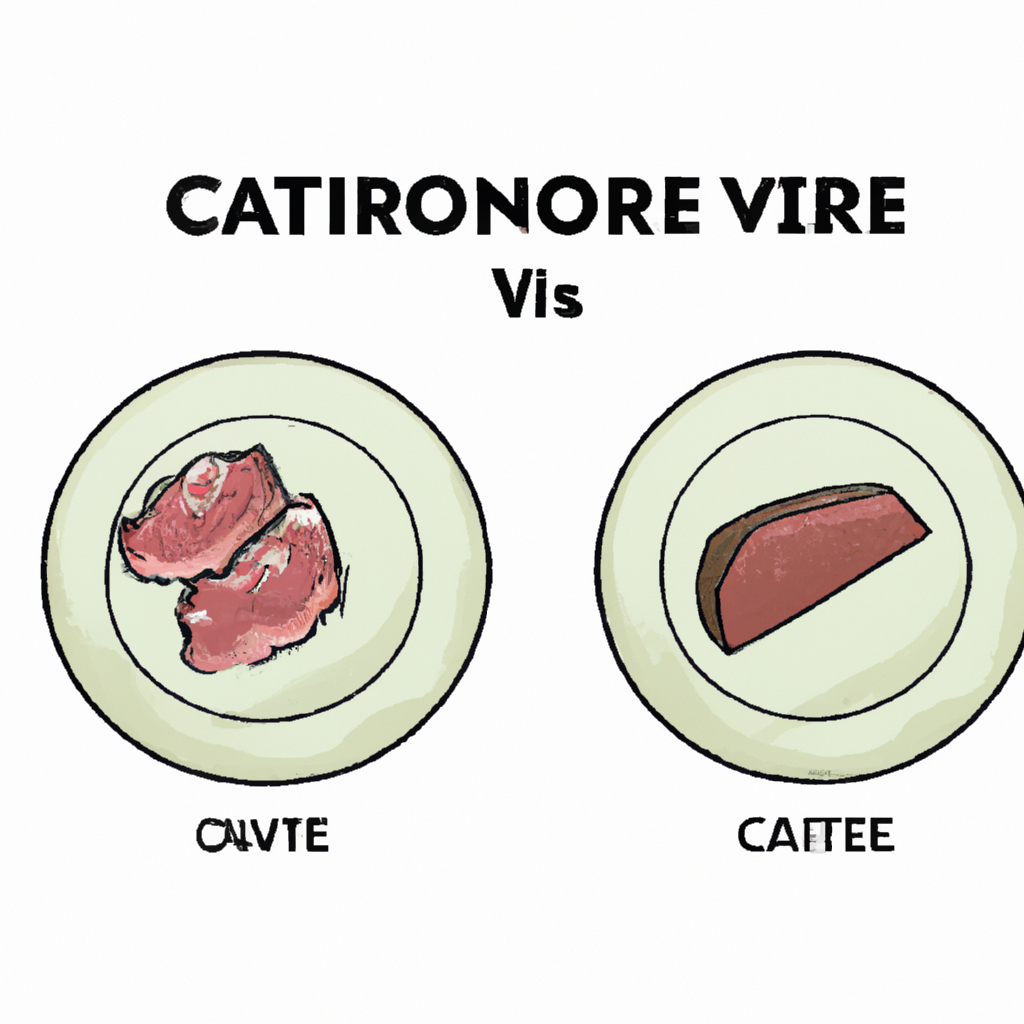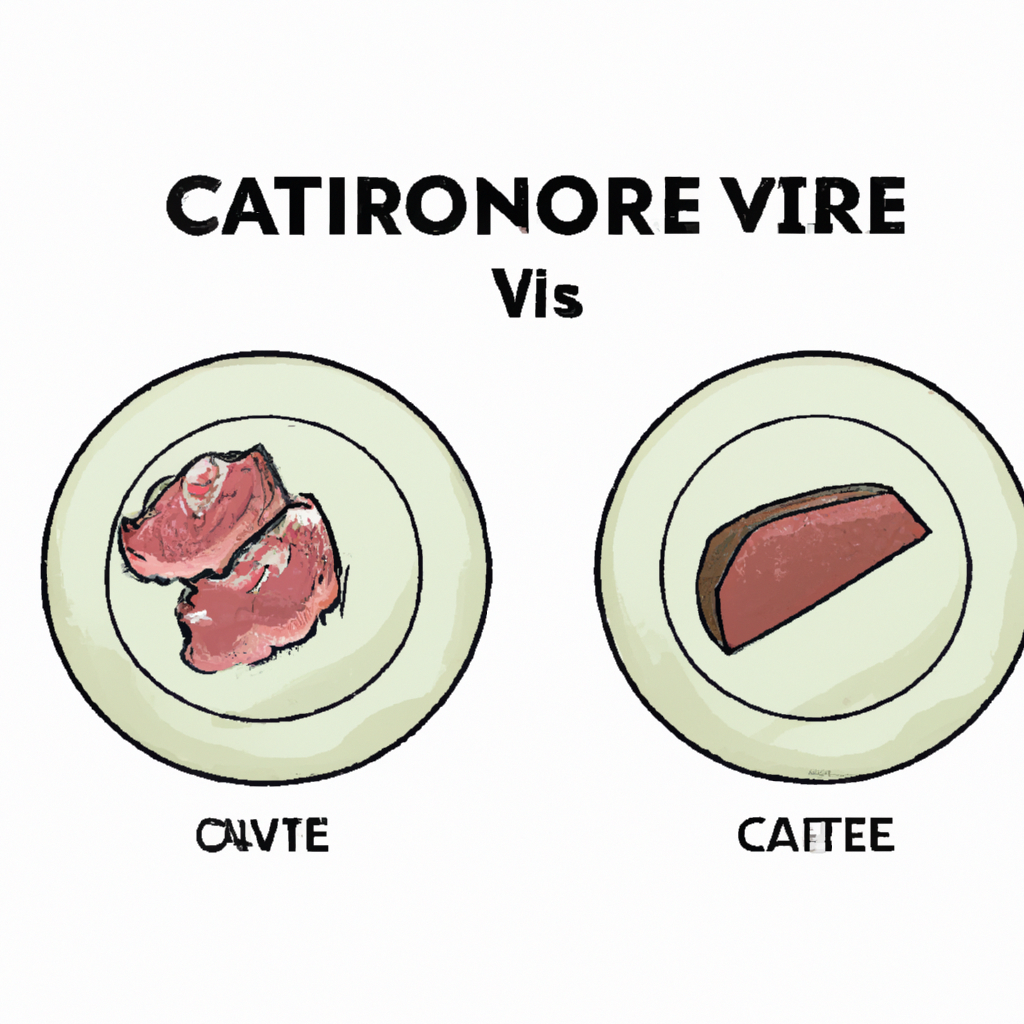Are you finding it hard to choose between the Carnivore diet and the Keto diet? You’re not alone! Both regimes have taken the nutritional world by storm, leading to numerous debates about their pros and cons. This comparative analysis aims to clear the fog and help you discern which of the two – Carnivore or Keto – aligns best with your dietary goals, health needs, and lifestyle choices.
The Basics of the Carnivore Diet
The carnivore diet, as the name suggests, consists exclusively of animal products. This diet focuses on high-quality meats, seafood, eggs, and sometimes dairy, excluding all plant-based foods.
Definition and main principles
The carnivore diet follows a simple principle – if it comes from an animal, you can eat it. If it doesn’t, you can’t. Rooted in the belief that human ancestors predominantly consumed meat and fish, it’s a diet rich in protein and fats but sparse in carbohydrates.
Typical Meal Plan
A typical meal plan on a carnivore diet usually consists of breakfast with eggs and bacon, followed by meals of steaks, pork chops, or other cuts of meat throughout the day. You might consume fatty fish like salmon and even organ meats like liver. Dairy products like milk, cheese, and butter can also be included depending on your personal preference for dairy and the way your body reacts to it.
Benefits
The carnivore diet claims several benefits, the foremost being weight loss due to decreased calorie intake and improved body composition due to the high protein content. It may also lead to reduced blood sugar and insulin levels, potentially benefiting those with type 2 diabetes or metabolic syndrome.
Potential Risks
However, the carnivore diet also carries several potential risks. The most obvious is nutrient deficiencies, especially of certain vitamins, minerals, and fiber, which are typically abundant in plant foods. There can also be an increased risk of heart disease due to high intake of saturated fats.
The Basics of the Ketogenic Diet
The ketogenic diet, or keto diet, is a low-carb, high-fat diet that aims to switch your body’s default energy source from carbohydrates to fats, inducing a metabolic state known as ketosis.
Definition and main principles
The main principle of the ketogenic diet is to lower the intake of carbohydrates drastically (to around 5% of your total caloric intake) and increase the intake of fats (to around 75% of total calories), with the rest coming from protein.
Typical Meal Plan
A typical keto diet meal plan might include an omelet with spinach and cheese for breakfast, a salad with grilled chicken and avocado for lunch, and steak with a helping of non-starchy vegetables like broccoli for dinner. Snacks might include nuts, cheese, or a boiled egg.
Benefits
The ketogenic diet has been found to aid weight loss, improve cardiovascular health, reduce blood sugar and insulin levels, and even benefit certain neurological disorders. Its therapeutic role in managing epilepsy, especially in children, is also recognized.
Potential Risks
Potential risks of the ketogenic diet include nutrient deficiencies due to a lower intake of fruits and vegetables, symptoms of ‘keto flu’ like nausea, headaches and fatigue, and potential negative impacts on kidney and liver health due to the high-fat content.

The Role of Carbohydrates
Carbohydrates are a considerable part of the human diet, but their role is quite different in the carnivore and the keto diet.
Carbohydrates in Carnivore Diet
In the carnivore diet, you consume virtually no carbohydrates. This absence of carbs can shift your body into ketosis, where it starts burning fat for fuel.
Carbohydrates in Keto Diet
The ketogenic diet is also low-carb but allows for a small intake, up to a limit of around 5% of total daily calories. This allowance usually goes towards non-starchy vegetables and some dairy products.
Impact on body and metabolism
The essential role of carbohydrates is providing your body with energy. When your diet is low in carbs, your body starts converting fats into ‘ketones,’ an alternate source of energy. This metabolic shift is the principle behind both the carnivore and keto diets, aiming to enhance fat burning and, in turn, promote weight loss.
The Role of Fats
Fats, often demonized in standard diets, have a vital role in both the carnivore and keto diet.
Fats in Carnivore Diet
In the carnivore diet, fats come naturally with high-quality animal-based foods. Fats contribute to the flavor of your food and provide you with fuel when carbohydrates are lacking.
Fats in Keto Diet
In the keto diet, fats are the primary source of your energy. Ideally, 70-75% of your daily caloric intake should come from fats in the keto diet.
Role of Fats in Metabolism and Energy
Fats are an essential part of your nutrition, providing energy, supporting cell growth, and playing a role in hormone production. When you limit carbohydrates, your body turns to fats for energy, breaking them down into ketones in a process called ketosis.

The Role of Protein
Protein, the primary macronutrient in the carnivore diet, also plays a crucial role in the keto diet. It’s essential for muscle growth and repair, as well as several vital bodily functions.
Protein in Carnivore Diet
The carnivore diet is heavy in protein, given its meat-centric approach. You primarily get your energy from protein and fats.
Protein in Keto Diet
The keto diet also includes protein, but in moderate amounts – typically around 20% of your daily caloric intake. Too much protein can interfere with ketosis.
Importance of Protein
Besides promoting muscle health, protein is critical for tissue repair, enzyme production, and immune function. It also helps increase feelings of fullness, potentially aiding weight loss.
Impact on Blood Sugar and Insulin Levels
Both the carnivore and ketogenic diets have direct impacts on blood sugar and insulin levels due to their low-carb nature.
Carnivore Diet and Blood Sugar Levels
The carnivore diet can significantly reduce blood sugar levels given the absence of carbohydrates. This could potentially help manage type 2 diabetes but must be followed under medical supervision.
Keto Diet and Blood Sugar Levels
Similarly, the ketogenic diet can also reduce blood sugar and insulin levels, providing potential benefits to those with prediabetes or type 2 diabetes.
Insulin Responses in Both Diets
Since insulin secretion is primarily triggered by glucose from carbohydrate digestion, low-carb diets like carnivore and keto can result in lower insulin levels.
Impact on Weight Loss
Weight Loss Results in Carnivore Diet
Weight loss can be impressive in the carnivore diet due to lower calorie intake overall and increased protein, affecting hunger hormones favorably and boosting metabolism.
Weight Loss Results in Keto Diet
The ketogenic diet is renowned for promoting weight loss, owing to reduced hunger and a higher calorie burn rate while in ketosis.
Comparing the Efficacy for Weight Management
Both diets can lead to weight loss, but the sustainability and the health implications of the weight loss might differ as per individual health conditions and lifestyle circumstances.
Long-term Health Implications
Long-term effects of Carnivore Diet
The long-term effects of the carnivore diet are not well-studied. Potential issues could include nutrient deficiencies, increased risk of heart disease, and potential adverse effects on gut health.
Long-term effects of Keto Diet
The long-term effects of the keto diet are more documented. While it can be beneficial for certain conditions, prolonged restriction of carb intake can lead to issues like constipation, nutrient deficiencies, and potential risks to cardiovascular health.
Potential Health Risks
Both diets require careful consideration and consultation with a healthcare provider, especially if followed over a longer-term as they can potentially lead to severe health risks.
Recommendations for Specific Groups
Carnivore Diet for Specific Health Conditions
Certain specific health conditions might benefit from the carnivore diet, such as inflammatory issues or autoimmune conditions. However, it’s crucial to follow it under close medical supervision.
Keto Diet for Specific Health Conditions
The keto diet can be beneficial for people dealing with obesity, type 2 diabetes, and certain neurological conditions like epilepsy.
Special considerations like pregnant women, athletes
Pregnant women, athletes, and individuals with certain health conditions like kidney disease should exercise caution when considering these diets due to their extreme nature and potential nutrient deficiencies.
Conclusion
Overall Comparison of Carnivore and Keto Diets
While both the carnivore and keto diets have similarities in their low-carb, high-fat principles, the carnivore diet is more extreme, permitting no plant foods. Both can lead to weight loss and other potential health benefits, but both carry risks, especially in the long run.
Recommendations for Individuals
As an individual considering these diets, it’s vital to reconsider your health goals, pre-existing health conditions, and dietary preferences. These diets are not for everyone and should be implemented under professional guidance.
Final thoughts
Whether you eventually choose the carnivore diet, the keto diet, or decide they’re both not right for you, what’s essential is maintaining a balanced, nutritious diet that meets your body’s requirements and supports your overall health.

